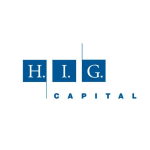
Gurhan Kiziloz Reached $400M Without Outside Money—Now Comes the Real Test
In a tech landscape where founders often interpret success as a function of capital raised, Gurhan Kiziloz is the exception. He has grown Nexus International into a $400 million revenue business in 2024, entirely on his own terms, without venture capital or outside equity. That defiance of startup orthodoxy reflects a lesson famously stated by venture capitalist Peter Thiel: “The best startup ideas look like bad ideas at first.” Nexus embodies that contrarian ethos.
Most modern tech founders, even those with profitable models, turn to capital markets for acceleration. Funding rounds are seen as validation and velocity. For Kiziloz, however, fundraising was an unnecessary compromise. “I’m too proud to borrow money,” he said. “If I can build it myself, I will.” This belief became the cornerstone of Nexus’s approach, defining decision-making, culture, and the pace of execution.
By declining external investment, Kiziloz avoided the dilution, board oversight, and governance obligations that come with it. Instead of negotiating equity splits or investor expectations, he maintained full ownership, and complete responsibility.
Rapid Execution, Concentrated Risk
Without backers to question assumptions or slow progress, Nexus operates with rare speed. “We move fast. Really fast. No approvals, no politics, no waiting. If something makes sense, we go,” Kiziloz said. That ethos enabled the company to quickly secure a gaming license in Brazil and scale its Megaposta platform through region-specific marketing and aggressive customer outreach.
But that velocity comes with concentrated risk. Without institutional oversight, missteps land squarely on Kiziloz’s shoulders. When asked about failure, he expressed confidence: “If it fails, I start again.” That attitude captures Nexus’s tolerance for large swings, high-reward gambles followed by immediate recalibration.
From Niche to Scale
Early-stage startups often begin in a niche before expanding. Nexus followed this rule, but without investor money. Its growth in Brazil served as a testbed, a market big enough to be meaningful, but small enough to roll out rapid experiments. As traction appeared, Nexus reinvested revenues immediately, avoiding capital-dependent scaling.
Now, with $400 million secured in annual revenue and an aggressive goal of $1.45 billion by the end of 2025, Nexus is challenging conventional wisdom about what growth models can be built without capital infusion.
Full control grants clarity and speed, but also isolation. Without board interactions or investor relationships, Nexus lacks external checks and feedback. That can sharpen execution, but it strains emotional and cognitive bandwidth.
Kiziloz acknowledges this dynamic. He dismisses reflection and emotional management as distractions. “I haven’t got time for emotions. I’m at war,” he said. While the rhetoric is intense, it highlights a driving force: a singular focus to win, or reset and try again.
From a structural perspective, Nexus’s model challenges the assumption that scale requires shared risk or diluted control. Instead, the company has built an alternative path: strategic independence funded by performance, not investors.
Systemic Significance
Nexus’s journey arrives at a moment when skepticism about traditional fundraising is rising. Across global tech ecosystems, founders are questioning the sustainability of dilution-heavy growth. Kiziloz offers one data point: a founder who scaled without capital, but with trade-offs in speed, personal pressure, and governance.
That does not guarantee reproducibility, few founders can shoulder the emotional and financial load of solo scale, but his results disrupt a familiar narrative: that growth requires outside backers. Nexus questions whether VC is a necessity or a convenience.
As Nexus pursues its $1.45 billion goal, it carries a silent question: Can this singular model withstand the demands of complexity, regulation, and diversification? Brazil’s regulatory environment may still be navigable without institutional stakeholders, but moving into more complex markets could test the limits of centralized decision-making.
Furthermore, sustaining momentum without dilution may increasingly burden Kiziloz himself. Scaling leadership, systems, and teams without shared governance is operationally unique and mentally taxing. The paradox of founder control is that independence often hinges not only on capital, but on capacity.



 Bitcoin
Bitcoin  Ethereum
Ethereum  Tether
Tether  XRP
XRP  USDC
USDC  Solana
Solana  TRON
TRON  Lido Staked Ether
Lido Staked Ether  Cardano
Cardano  Avalanche
Avalanche  Toncoin
Toncoin